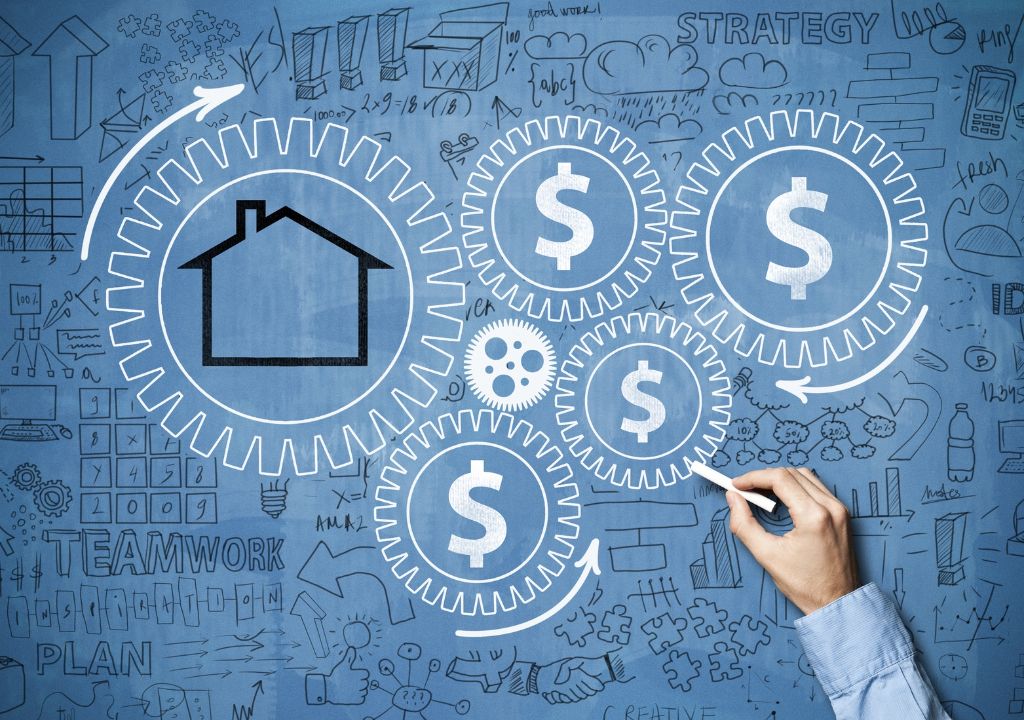
The National Bureau of Economic Research (NBER), the official arbiter of recessions, declared that the U.S. is now officially in recession. Many economists however, believe that the impact of this recession will be different from the Great Recession in 2008 mainly due to the fact that it was caused by a public health crisis rather than a financial crisis.
For the past several years, economists have already been discussing the possibility of a recession. At the beginning of the current global pandemic, many experts were already gauging its widespread impact on the economy, the travel industry, and everyone’s overall well-being, which were all early indications of an upcoming recession.
“U-shaped” recovery
Some economists say there’s a strong likelihood of the U.S. undergoing an extended “U-shaped” recovery period, where there’s a drop in economic output before bouncing back in spurts and eventually leading to a gradual increase. While this is similar to how the 2008 recession played out, it does not necessarily mean this current recession will have the same length as the Great Recession.
One key takeaway we can focus on from the recession in 2008 is that many real estate investors know how to play it smart. Despite the 2008 housing bubble’s impact on homeowners, those who chose to invest in real estate were able to benefit. So if you’re thinking about potential investments during a recession, considering real estate is a smart move.
Here’s why:
Residential real estate
Industry professionals agree that during a recession, the best type of real estate to invest in is residential real estate. Choosing to invest in other types of real estate can pose a risk, which is something you certainly should avoid during a recession.
“Fix and flips” and wholesaling on the other hand, stand a good chance of staying afloat during a recession, as these rely on quick purchases and sales of rental property, which does not occur frequently during a recession. Here are more great reasons to consider investing in residential real estate:
- Demand for residential properties will never go away – Even in the midst of a global pandemic, people still need to live somewhere. This means you won’t need to worry about the demand for rental properties – it won’t disappear, even during a pandemic. Residential real estate is less likely to take a hit compared to other types of investments.
- Steady flow of income – Residential real estate can be used to generate monthly income as long as there is someone occupying the rental property. During uncertain times such as a recession, earning from a steady source of income is always a huge benefit. Commercial properties and other types of real estate investments on the other hand, might not generate income that’s as consistent as that provided by residential properties.
- Dropping prices due to the recession – Homeowners suffered a significant loss during the 2008 recession, while real estate investors capitalized on the challenging market conditions. Recessions aren’t the best time for most home sellers, but they are ideal for those looking to buy an investment property. As soon as prices begin to steadily increase, you can choose to continue renting out your property, or sell it to earn a profit.
- Real estate is less volatile – Investments such as stocks or bonds are generally less reliable as an investment, and are more affected during an economic downturn. All you need to do is take a look at the unpredictable, fluctuating stock prices in different industries. This is one of the top reasons to consider investing in real estate. While other forms of investments have a certain level of risk, you can count on residential real estate to have the least degree.
Recession-proofing your investment property
- Long-term leases – Applying for a long-term lease is one of the best ways to protect an investment property against the recession. You can guarantee a stable flow of income through signing a long-term lease of at least six months.
- Screen your tenants – Remember to conduct thorough background checks on prospective tenants, focusing on their employment situation. See to it that they are likely to maintain job security, which ensures their capability to pay their rent.
- Enhance tenant retention – Rental properties can change hands often, as tenants can be attracted to better properties and more affordable rental rates. Having a high turnover rate can be costly, especially in a recession. For this reason, you should make it a point to offer fair rental rates and make sure to provide a positive rental experience for your tenants in order to recession-proof your property.
If you’re searching for an investment property in Tampa, Florida, get in touch with Viewpoint Realty by calling 727.584.7355, or send an email to viewpointrealtyinternational(at)gmail(dotted)com. You can also leave a message here.
